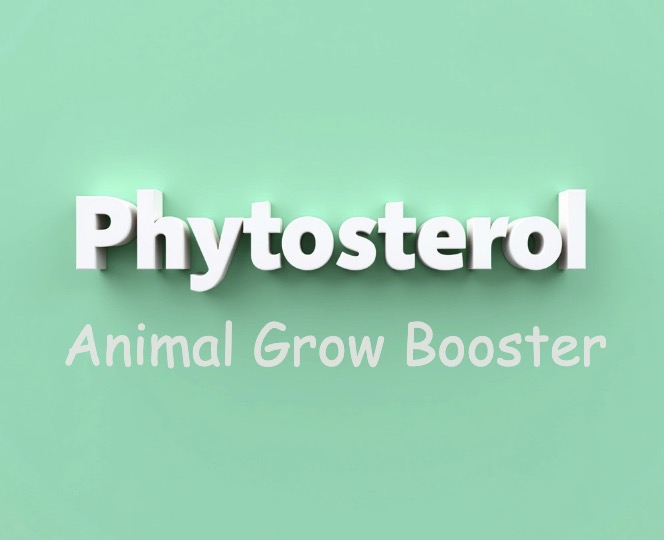As a feed additive, phytosterols, which are plant – derived sterols with a structure similar to cholesterol, offer several important functions:
1. Sterol – reducing effect
- In animals’ bodies: Phytosterols as a feed additive can compete with cholesterol for absorption in the intestinal tract of animals. They displace cholesterol from micelles, which are responsible for transporting cholesterol across the intestinal epithelium. As a result, less cholesterol is absorbed into the bloodstream. For example, in poultry and swine, dietary supplementation with phytosterols can lead to a decrease in the total cholesterol content in their blood, liver, and other tissues.
- In animal products: When used in livestock and poultry feeds, phytosterols can reduce the cholesterol content in animal – derived products such as eggs and meat. In laying hens, adding phytosterols to the feed can lower the cholesterol level in eggs, making them a healthier choice for consumers concerned about cholesterol intake.
2. Improvement of reproductive performance
- In female animals: Phytosterols as a feed additive can influence the hormonal balance in female animals. They may have an impact on the synthesis and secretion of reproductive hormones such as estrogen. In sows, for instance, phytosterol supplementation can improve the regularity of estrous cycles, increase the number of viable embryos, and enhance overall reproductive efficiency. In laying hens, it can promote normal ovarian function and egg – laying cycles, leading to increased egg production.
- In male animals: Some studies suggest that phytosterols can also have positive effects on male reproductive function. They may improve sperm quality, including sperm motility and viability, which is beneficial for breeding programs in livestock.
3. Enhancement of immune function
- Antioxidant activity: Phytosterols as a feed additive possess antioxidant properties. They can scavenge free radicals in the animal’s body, protecting cells and tissues from oxidative damage. Oxidative stress can weaken the immune system, making animals more susceptible to diseases. By reducing oxidative stress, phytosterols help maintain a healthy immune system. For example, in fish, phytosterol – supplemented diets can enhance the antioxidant capacity of the fish, reducing the damage caused by environmental stressors and improving their resistance to diseases.
- Modulation of immune – related genes: Phytosterols can modulate the expression of immune – related genes in animals. They may up – regulate the production of cytokines and other immune factors, enhancing the overall immune response. This can help animals better resist infections and diseases, especially in intensive farming systems where animals are more likely to be exposed to pathogens.
4. Growth promotion
- Improvement of feed utilization: Phytosterols as a feed additive can enhance the digestibility and utilization of nutrients in the feed. They may improve the activity of digestive enzymes in the animal’s gastrointestinal tract, leading to better breakdown and absorption of nutrients such as proteins, fats, and carbohydrates. This results in improved growth performance, including increased body weight gain and feed conversion efficiency in livestock and poultry.
- Stimulation of muscle development: Some research indicates that phytosterols may have a positive effect on muscle development in animals. They can promote protein synthesis in muscle cells, leading to increased muscle mass and improved carcass quality.
5. Anti – inflammatory effect
- Reduction of inflammation in the body: Inflammatory responses can occur in animals due to various factors such as infections, stress, or dietary imbalances. Phytosterols as a feed additive have anti – inflammatory properties and can help reduce the production of pro – inflammatory cytokines and mediators. This is beneficial for maintaining the health of animals, especially in high – stress farming environments where inflammation can lead to reduced growth and increased susceptibility to diseases. For example, in dairy cows, phytosterol supplementation can help reduce inflammation in the udder, preventing mastitis.

